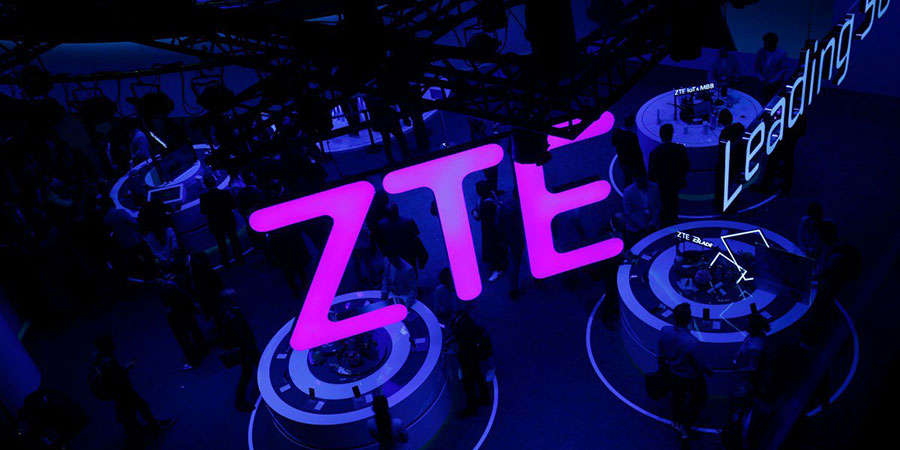ZTE Corporation, a major international provider of telecommunications, enterprise and consumer technology solutions for the Mobile Internet has reported its first-quarter results of 2019. Meanwhile, the company also its preliminary results for the six months ended 30 June 2019.
It marks a dramatic turn of fortunes of ZTE, who this time last year was on the verge of closure due to draconian measures that had been inflicted upon them by the US Department of Commerce.
However, twelve months later, ZTE has estimated its net profit attributable to holders of ordinary shares of the listed company to be from RMB 1.2 billion to RMB 1.8 billion for the six months ended 30 June 2019.
According to the company, its first-quarter operating revenue was RMB 22.202 billion, and net profit attributable to holders of ordinary shares of the listed company amounted to RMB 0.863 billion. During the first quarter of 2019, the company continuously strengthened its expense control and management, hence the decrease of selling and distribution costs compared to the same period last year.
During the first quarter, ZTE insisted on the innovation drive, intensifying the R&D investment in the 5G core areas. The R&D costs for the first three months amounted to RMB 3.093 billion, accounting for 13.9% of the operating revenue, with the percentage being increased by 4.1%, compared to 9.8% for the same period last year.
ZTE has implemented the concentrated strategy while constantly focusing on the main channel of operators, with preparation for 5G end-to-end commercialization in full swing. In the Wireless Networks, ZTE has entered into 5G cooperation with 40 global operators, and takes the lead in the commercial practices of Massive MIMO, one of the 5G key technologies.
To date, the company has deployed over 420 NFV commercial/PoC cases worldwide. Meanwhile, ZTE’s 5G end-to-end commercial products and solutions as well as full series of NR products have achieved all-band, all-scenario coverage. Its Common Core realizes 2/3/4/5G/fixed full access and full integration while supporting both SA and NSA networking so as to achieve the smooth evolution to the target network at the lowest cost.
In addition, the company’s self-developed AI Engine is capable of supporting 5G intelligence in all scenarios. ZTE has signed more than 320 LTE/EPC commercial contracts worldwide, and ZTE's total 4G eNB shipments around the world have reached almost 20% of its global market.
In the Wireline Networks, ZTE’s competencies in the fields of 5G transport, optical transport, IP transport, optical access and big video have been constantly improved. In the 5G transport field, the company has completed over 20 trials and tests, achieving industry-leading key technical indicators and commercial progress.
As ZTE’s flagship optical access platform, TITAN records the industry’s top 1 in terms of capacity and integration, with its innovative architecture supporting fixed-mobile convergence and embedded edge computing. It has been adopted on a large scale in China, Italy and Japan.
In the Mobile Devices, ZTE has concentrated on key customers and major markets to maintain its 5G commercial leadership.
To date, the company has taken the lead in completing the 5G end-to-end connection of the three mainstream Chinese operators, and conducted 5G device tests in countries like China, Australia, Spain, Austria, Italy and Finland. In partnership with China Unicom, Elisa, and Hutchison Drei Austria, ZTE launched the first 5G flagship smartphone, the ZTE Axon 10 Pro 5G, which will be launched in China in early May 2019. ZTE’s 5G Indoor and Outdoor CPEs as well as other serialized 5G devices will also be available in major global markets in the future.
In the fields of 5G industry applications, ZTE is devoted to collaborating with major operators and partners to conduct “5G+” research and exploration, demo construction, as well as commercial incubation in the areas of intelligent manufacturing, new media, smart grids, intelligent ports, intelligent airports, environment protection, tourism and healthcare, thereby facilitating the digital transformation of vertical industries in the 5G era.
For instance, ZTE signed a strategic cooperation agreement with Sany to jointly explore the in-depth integration of 5G and the industry. Also, ZTE collaborated with Hunan Branch of China Telecom to build a smart factory, and Tianjin Branch of China Unicom to build the world’s first 5G&MEC intelligent port. Moreover, in cooperation with China Telecom, ZTE built the 5G trials in Xiong’an and completed a series of 5G services including unmanned driving, intelligent security, Baiyangdian intelligent water management, panoramic VR HD live broadcast, 16-channel HD video live broadcast, and dual-city 4K HD video conference.
Moving forward, the company will continuously strengthen its investment in major businesses and key markets, constantly improving the competencies of its major products and intensifying the cooperation with third parties in the industry, so as to promote the positive development of the industry chain.





